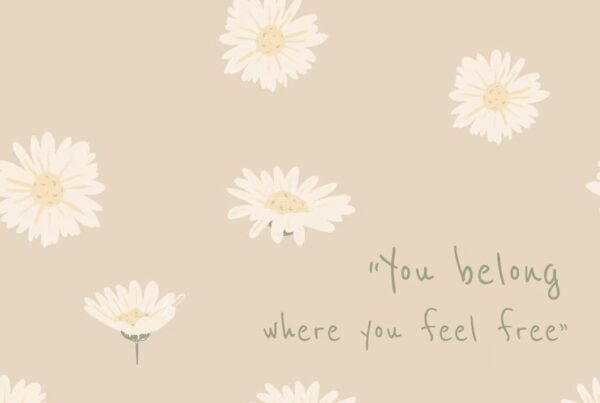“As of late, I’ve been going down a rabbit hole of the significance my life holds. I think the most important value to me is transparency because a lot of the things we feel, go through and experience are universal and felt by most humans. This isn’t a cry for help but it’s just the honest truth of what I think on a daily basis. I’ve always thought that, for most, our lives are as insignificant as an ant on a sidewalk. But I also think of how significantly insignificant that ant is, no matter how small it may be. I really go back and forth on a lot of this haha. I think this just stems from me being tired and I constantly remind myself that it’s perfectly okay to be tired. A type of tiredness that goes beyond just a physical aspect. I’m not too sure what the point of this was but writing is my comfort and the only way I know how to organize the mess that goes on in my head.”
– An excerpt from my personal journal
The idea in the excerpt above can be applied to both my personal and academic life, with a great deal of overlap.
These thoughts are captivatingly burdensome. I do believe that these feelings are what make the human experience beautiful and vast while connecting us with our immediate surroundings. Most of our experiences are indeed universal and those experiences are the essence of human existence. I understand that these types of thoughts are knee-deep in the philosophical ideology of existentialism. The concept of existentialism explores the purpose and meaning of life as we know it. According to this belief, we humans have our own free will to define what our purpose is. It is our daily decisions that contribute to the meaning we find in life and the paths we choose to walk. We are the designers of our lives and our destiny.
These moral dilemmas ultimately construct our individual development. One of my favorite existentialist books is The Midnight Library. In this fantasy novel, Nora (the main character), reaches the end of her life but soon realizes it was not the end. Somewhere, far away, in between life and death, exists the midnight library. In this library, there is an endless amount of books from alternate realities that are a result of different choices and decisions made by Nora. She discovers countless versions of herself and what could have been if she had made a slightly varied choice. All things considered, Nora finds herself pondering what is important to her and what makes life worth living. Upon finishing this novel, I reflected on my personal experiences and all of the choices I have made thus far that ultimately led me to graduate school.
Navigating graduate school has been a journey within itself. Up until now, I have realized that I am hyperaware of my identities at all times. These identities include me being Mexican-American, disabled, bisexual, and sometimes a woman (gender dysphoria is another rabbit hole I find myself going through more often than not haha). Do you see a common trend? All of my identities are the minority.
One of the biggest challenges I have encountered thus far during my time in graduate school, is how do I be authentically myself in a superficial world? Like I said in my excerpt above, I value transparency and honesty above all else. It seems as though, many people trek through this world by means of pretend. I refuse to navigate this lifetime by putting on a facade. As cheesy as it sounds, this life is too short to constantly put on an act.
To help make this painting clearer, I will discuss a little bit about my disability.
My journey with disability began when I was only 13 years old. I was in my freshman high school biology class when I had my first episode of optic neuritis and three years later, I was diagnosed with Multiple Sclerosis (MS). So what is MS? Multiple Sclerosis is an autoimmune disease of the central nervous system (CNS) that eats away at the protective layer around your nerves, called the myelin sheath. Nerves are responsible for the flow of information throughout the body and when this flow is disrupted, an endless list of symptoms arises, such as vision loss, pain, fatigue, and cognitive dysfunction. Before my diagnosis, I experienced a variety of symptoms that ranged from severe fatigue to instances of vertigo. Until my diagnosis, there was always a missing puzzle piece. Imagine the emotions of a child who is told they have a life-changing illness with no further information on the matter. I was scared and confused, but with the help of an MS specialist and an extraordinary support system, I am able to live life according to my own circumstances. It was not until years after my diagnosis that I realized, multiple sclerosis is my invisible disability.
Counting the years before my diagnosis, I have been living with MS for around 10 years now. Living with a chronic illness has made me no stranger to honesty. Over the years, I have become tired of pretending that I am okay and tired of being tired. The experience of living with MS has changed me in ways that I don’t even really understand but I wouldn’t change a thing. Does this help to understand why I value transparency and honesty so much?
Moving on to my queer identity. Bisexual with a whole lot of gender dysphoria. I knew from a very young age that my attraction was not limited to the opposite gender. But it was not until a few years ago, that I did some soul-searching to come to terms with my sexuality. It was also around this time that I started to experience feelings of gender incongruence. I won’t go down that rabbit hole during this post though.
And last but certainly not least, being Mexican-American. This identity was with me from the moment I was born. The beautifully intricate Mexican-American culture will be within me until the very end. Yes, I have encountered the discriminatory consequences of our European-centric society but the connection to my cultural heritage outweighs the bad.
My disability, cultural identity, and sexual orientation have all contributed to the person I am becoming. As a person with a disability, I recognize the repercussions of an ableist society. As a Mexican-American person, I have experienced the effects of discrimination and the European ideologies that silence people of color. As a bisexual person, I see how our sexual orientation is often invalidated by the great majority. All of my identities co-exist with one another and are interconnected to make me the person I am today.
With all of that being said, it has become increasingly difficult to control my level of authenticity in academia and graduate school. Maybe the further along I proceed within academia, I will learn how to be unapologetically myself. I do believe that I have grasped authenticity in my personal life but I only hope that one day I will not have to hide who I really am in graduate school. This does not take away from the real personal connections I have made during graduate school but amongst the crowd, I will blend in.



